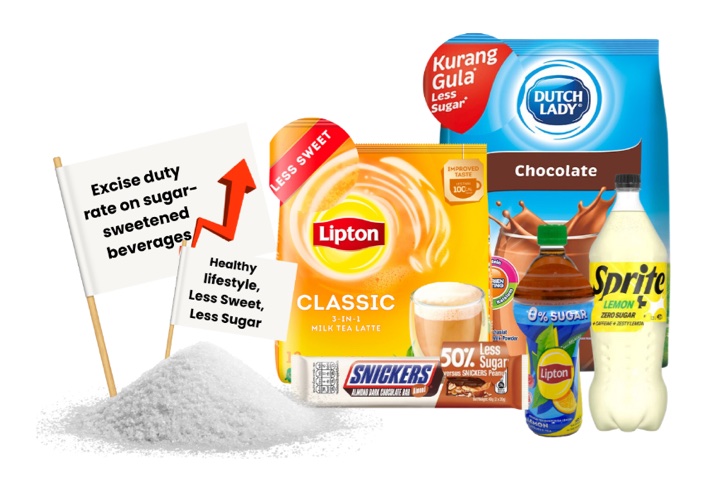
A Healthier Hue Emerges
The Malaysian fast-moving consumer goods (FMCG) sector is undergoing a significant shift as consumer preferences lean towards health and wellness. This evolving taste is reshaping the industry's offerings, leading to a surge in products with reduced sugar content. The industry is actively innovating and integrating wellness into its core, marking an unprecedented change in its approach.
Transformation in Product Sweetness
A walk through any Malaysian supermarket reveals the change in the FMCG landscape. Products that were traditionally high in sugar are now available in reduced or zero-sugar versions. The trend, initially spearheaded by products like Coke Zero, has gained momentum. By 2023, newcomers such as Lipton's Zero Sugar Lemon Tea and Sprite Lemon+ Zero Sugar have become emblematic of a health-oriented lifestyle choice.

Government's Role in Promoting Health
Malaysia's government has reinforced this health-driven trend by intensifying the sugar tax, demonstrating a national commitment to combating health issues like diabetes. This strategic move aligns government policy with public health objectives, making it a collective effort towards a healthier nation.
Broadening the Scope of Healthier Offerings
The trend of reduced sugar is not confined to beverages. Household names like Lipton, Dutch Lady, and Snickers have introduced less sugary versions of their products. This shift is a proactive transformation, reflecting a deep-seated change in consumer tastes and priorities.
Economic Implications of Healthier Products
The transition to low or zero-sugar products comes with significant cost implications for suppliers. The Malaysian Medical Association (MMA) suggests that government incentives and tax rebates could be crucial in modifying consumer habits and supporting this industry shift (Malaysian Medical Association, 2023).
Crafting the Future of Consumption
In summary, the Malaysian FMCG sector is pivoting towards a future defined by health consciousness and mindful consumption. This change, driven by evolving consumer preferences, has led to an influx of innovative, low-sugar, and zero-sugar products. Government support, exemplified by the sugar tax, showcases a collective effort in addressing public health concerns.
This health-centric shift is not limited to beverages but spans various product categories, indicating a fundamental change in consumer behavior. The cost factor for suppliers in adapting to this trend is substantial. Government interventions, as advocated by the MMA, could be instrumental in nurturing these positive developments.
In this new era, where health, cost, and taste intersect in product development, the role of retailers and suppliers is crucial in shaping dietary trends. By adopting a data-driven approach and committing to healthier choices, the FMCG industry in Malaysia is set to lead a health-conscious revolution, setting an example for others to follow.
Reference: Malaysian Medical Association (MMA). (2023, July 20). Incentivise Production of Low-Sugar Food, Says MMA. Free Malaysia Today. Retrieved from https://www.freemalaysiatoday.com/category/nation/2023/07/20/incentivise-production-of-low-sugar-food-says-mma/